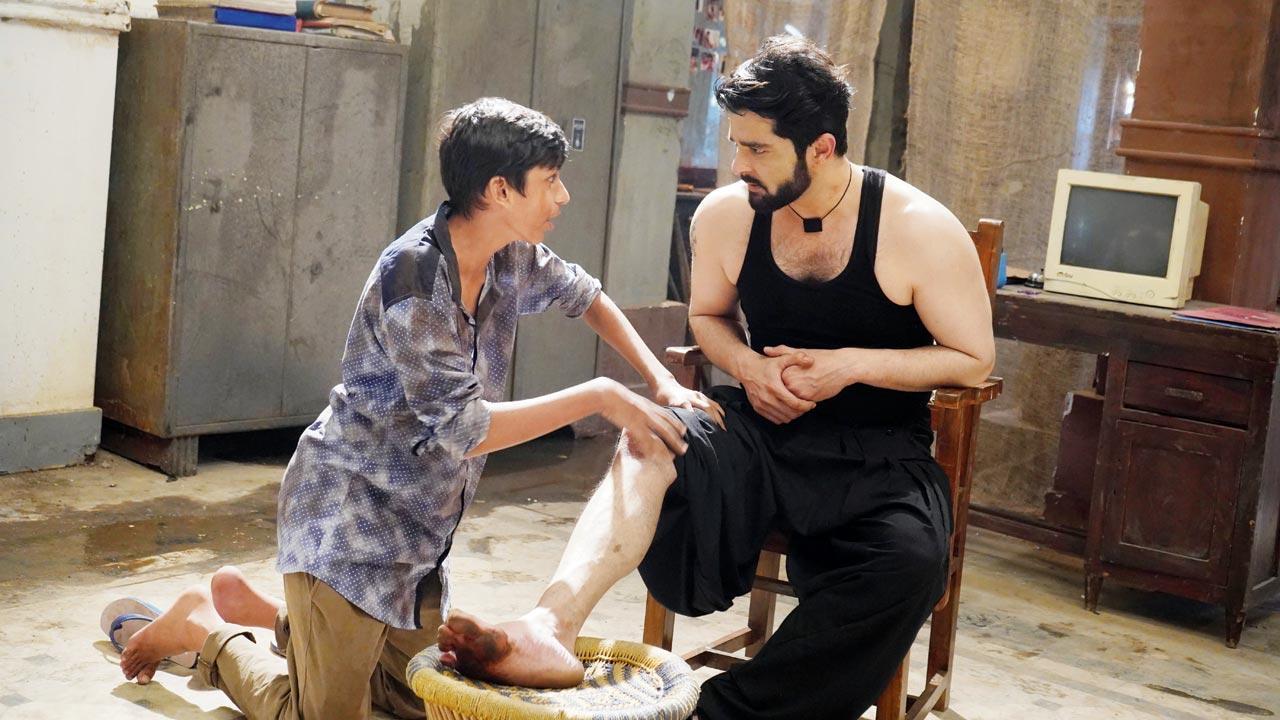Raqesh Bapat discusses his apprehensions and prep as he brings real-life crimes of Pakistani serial killer on screen with his eight-episode series Assi Nabbe Poorey Sau.

A still from Assi Nabbe Poorey Sau
With daily soaps like Saat Phere: Saloni Ka Safar, Maryada: Lekin Kab Tak and Qubool Hai, Raqesh Bapat admits he has often stayed in his comfort zone. But he is keen to shake up things with his next, Assi Nabbe Poorey Sau. The Ullu show, inspired by a real-life incident in Pakistan, sees him play a serial killer who strangles about 100 children to see their mothers weep. Acknowledging that it was not easy to align with the character, the actor talks about his process of slipping into the part.
ADVERTISEMENT
Edited excerpts from the interview.
After playing the chocolate boy, this is your first attempt at a dark role.
I was initially offered the role of the cop investigating the case. After calling me for the part, [the makers] had a brainwave about casting me as the serial killer. They felt that the character needed to look innocent, like the parts I have played on screen before. I didn’t think I could play the role because I couldn’t connect with the character, and I am fond of children.
Is the story based on incidents in serial killer Javed Iqbal’s life?
It is inspired by a real-life incident that happened in Pakistan. For long, people didn’t believe that he could have done something like this because he looked unassuming. Although the show is set in Pakistan, we’ve changed a few names, but the story has not been fictionalised much. They’ve tried to stick with the truth.
Raqesh Bapat
Did you research about his life before facing the camera?
I tried to research, but it was too gruesome for me to delve deeper. I followed the director’s [Akshay Singh] instructions and stuck to the brief he had given. I didn’t refer to other films about serial killers because I did not want to emulate anyone.
Luckily, the series does not focus on the crimes but is more of a courtroom drama. We have not shown gore in the series. The story is about what motivated him to attack, sodomise, strangulate and immerse the dead bodies of children in hydrochloric acid.
Studies show that some serial killers are creations of society. Did you feel sympathetic towards the character?
At a point, I did, but you cannot sympathise with a character like this. What he went through as a child wasn’t easy. But this is no solution. Before I slipped into the character, I met a psychologist to understand him better and to figure out the workings of a serial killer. I spoke to her throughout the show. She also helped me disconnect from the character after the shoot was wrapped up.
How do you critique your performances?
I am overly critical of my work. My family is my best critic. If I get a green signal from them, it is worth it. If I have performed badly, they have criticised it.
How do you think the content on OTT platforms will be affected by the new guidelines?
I don’t like the use of abusive language for the sake of it. People may not agree with me, but if I am watching a show with my family, I don’t want to hear expletives. There is freedom of expression, but storytelling is a huge responsibility. One must be careful of what they show on screen. Society emulates films and vice versa.
 Subscribe today by clicking the link and stay updated with the latest news!" Click here!
Subscribe today by clicking the link and stay updated with the latest news!" Click here!






